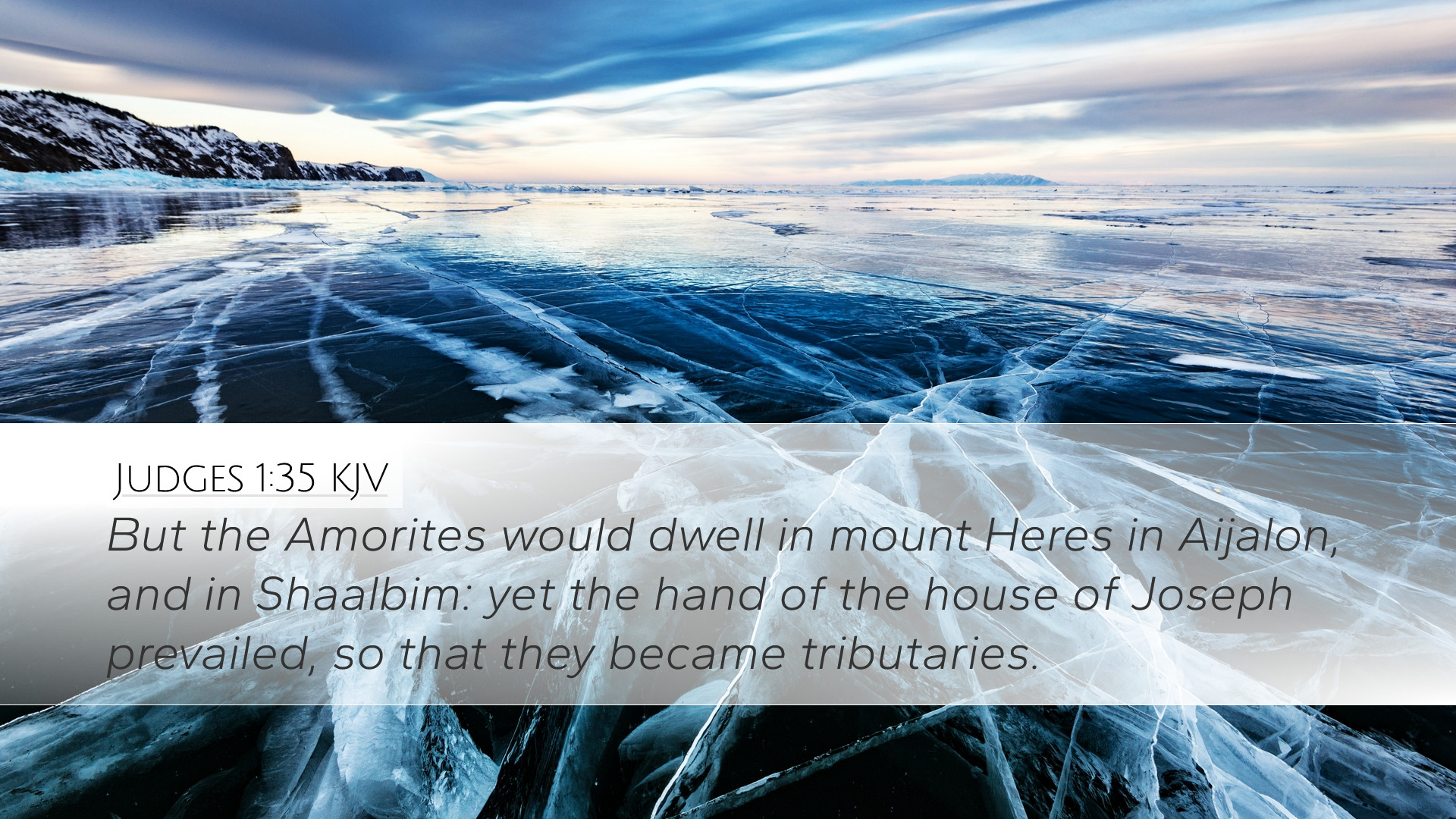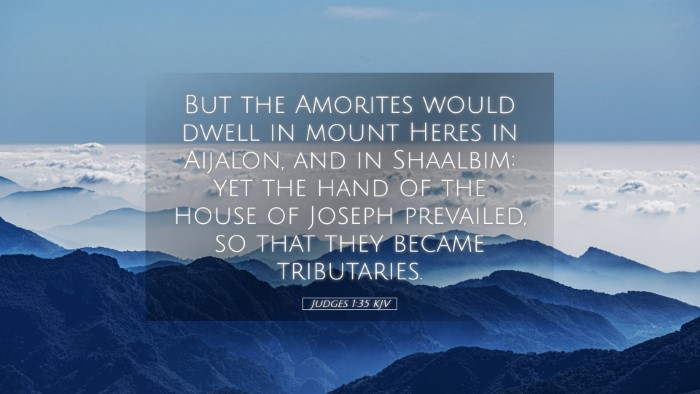Commentary on Judges 1:35
Text of Judges 1:35: "But the Amorites forced the children of Dan into the mountain: for they would not suffer them to come down to the valley."
Introduction
The Book of Judges provides a critical insight into the life and struggles of Israel during a time when they were ruled by judges rather than kings. The verse in question, Judges 1:35, encapsulates the ongoing conflict between the Israelites and the Amorites, illustrating the challenges faced by the tribe of Dan in securing their allotted inheritance. This commentary seeks to draw insights from various public domain sources, including Matthew Henry, Albert Barnes, and Adam Clarke, to deepen our understanding of this verse.
Contextual Analysis
Judges 1:35 falls within the broader narrative that recounts the conquests and territorial disputes following Israel's entry into the Promised Land. The mention of the Amorites highlights the persistent presence of this ancient group, who posed a significant obstacle to the Israelite tribes. As noted by Albert Barnes, the Amorites represented a formidable foe, showcasing both their strength and the challenges faced by the Israelites even as they attempted to settle in their promised land.
Exegesis of Key Terms
- Forced: This term indicates a level of oppression and subjugation. Matthew Henry points out that this ‘forcing’ was not merely physical but also psychological, illustrating the dual struggle faced by Dan—against both the inhabitants and their own fears and doubts.
- Children of Dan: The tribe of Dan was given a portion of land but struggled to seize it fully due to external resistance and internal challenges (Judges 1:34). Adam Clarke suggests that their inability to conquer the Amorites reflects a broader spiritual struggle within Israel, where divine assistance was not sought earnestly.
- Mountain: The geographic mention of ‘mountain’ symbolizes both limitation and security. The Amorites drove the Danites into the mountains, indicating that while they faced danger and intimidation, they were also brought closer to the divine heights where they could seek God, as noted by Henry.
- Valley: The valley often signifies a place where battles are fought and victories are won. The Amorite resistance prevented the Danites from descending into this region, representing both fear and failure to press into the fullness of what God had provided.
Theological Implications
The dynamics illustrated in Judges 1:35 speak volumes about the nature of spiritual warfare and the importance of faith in the face of overwhelming circumstances. Barnes emphasizes that the inability of Dan to conquer their enemies may symbolize the spiritual battles that believers face when they fail to rely on God's strength. Thus, the narrative serves as a reminder of the necessity of faith and divine assistance in overcoming formidable obstacles.
Lessons for Today
- Faith in Adversity: Just as the tribe of Dan faced overwhelming pressure from the Amorites, modern believers often encounter challenges that seem insurmountable. This passage reminds us to call upon God for strength rather than succumb to our circumstances.
- Resistance from Within: Clarke notes that the struggle wasn't just with the Amorites but also within the hearts of the Danites. Spiritual complacency or fear can prevent us from stepping fully into our God-given promises.
- Understanding Our Heritage: Each tribe had its unique calling and destiny. The fragmented nature of Israel serves as a reminder that often believers must understand their individual roles within the larger body of Christ (Romans 12:4-5).
Conclusion
Judges 1:35 serves as a poignant reminder of the spiritual and practical struggles faced by the people of God. The historical account of the Amorites and the tribe of Dan is not just a narrative of defeat but also a profound lesson in faith, perseverance, and dependence on God's power. For pastors, theologians, and students of the Word, this passage challenges us to reflect on our own faith journeys, urging us to resist the forces that seek to keep us from our destined inheritance in Christ.


